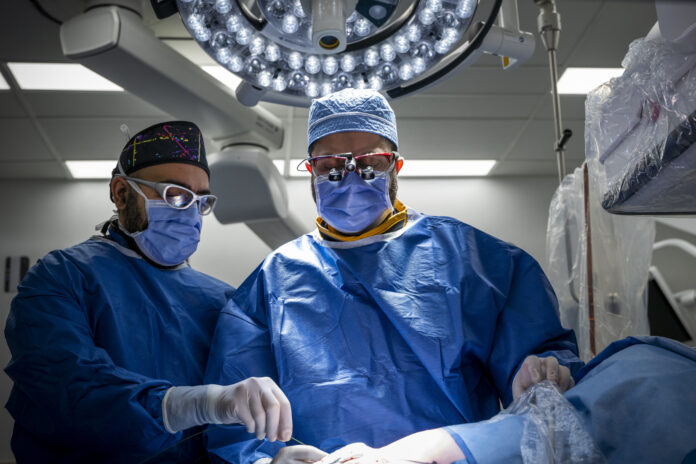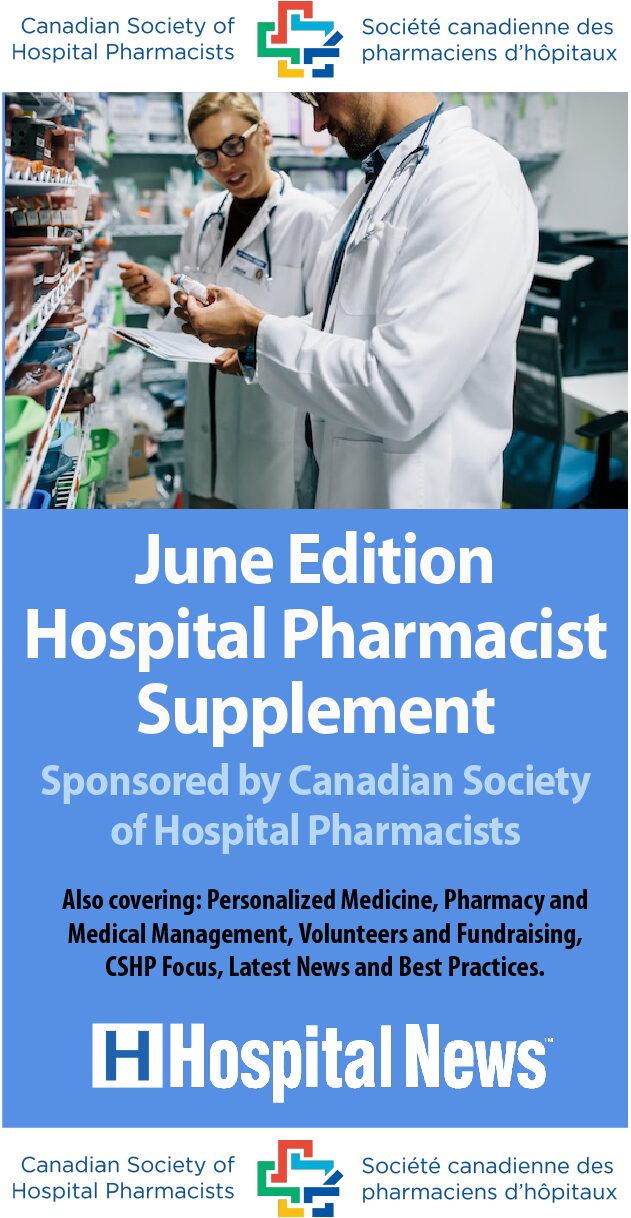The number of new technologies in health care continues to grow by the day and to make sure that patient care in southeastern Ontario is staying ahead of the curve, teams across Kingston Health Sciences Centre (KHSC) are banking on the power of collaboration to find innovative new ways to provide patients with the highest quality care, closer to home.
“Innovation has become a major pillar of our hospital strategy and we’ve developed an innovation portfolio here at KHSC to ensure we are creating an environment that allows our teams the freedom to be creative in finding solutions to the challenges we face,” says Dr. Michael Fitzpatrick, KHSC’s Chief of Staff.
Among the many innovative projects taking place across the hospital is a collaborative effort between the departments of vascular surgery and interventional radiology (IVR). Recently, these teams became the first in Ontario to pilot, and successfully complete, an iliac artery shockwave lithotripsy, using a technology developed to re-open heavily calcified arteries.
Iliac artery disease is caused by a slow buildup of calcium causing narrowing in the major arteries that supply blood to the pelvis and legs.
“While most blockages can be dealt with standard techniques, severely calcified arteries are problematic as they respond poorly to stenting and angioplasty. Using high-energy shockwaves to break down the calcium may be an option for some of these patients”, says Interventional Radiologist Dr. Ben Mussari.
During the procedure a small catheter is navigated, with the help of image guidance, to the location of the calcium and narrowing of the artery. A tiny device is then used to deliver the shockwaves and break down the calcium deposits.
“Iliac artery disease can significantly impact a patient’s quality of life, and by introducing this procedure, we are offering a less invasive and more effective treatment option,” says Dr. Michael Yacob, the vascular surgeon who completed KHSC’s first iliac artery shockwave case. “Prior to the surgery, the calcium blockage almost looks like a golf ball that is stuck inside a garden hose. This procedure breaks down that blockage and returns blood flow to the leg.”
Demi Thompson, a realtor from Rideau Ferry, was the first patient in Ontario to benefit from this innovative surgical approach.
“I honestly felt the night before the surgery I was on my last steps as it had become excruciating to walk. I couldn’t get from one side of my house to the other without taking a break. As soon as I woke up from surgery, I immediately noticed I had no pain,” says Thompson. “Dr. Yacob and team gave me my quality of life back and saved my limb. Now I can walk hundreds of yards without even any cramping, and I am enormously thankful.”
While the use of shockwave technology for this purpose was a trial at KHSC, the first case was successful, and Dr. Yacob believes it might have some staying power.
“I anticipate we’ll likely continue to do about five cases per-year, for the next several years. While it’s not the new standard of care across the board for all patients, it certainly does work well for a select group of individuals with very specific anatomy.”




